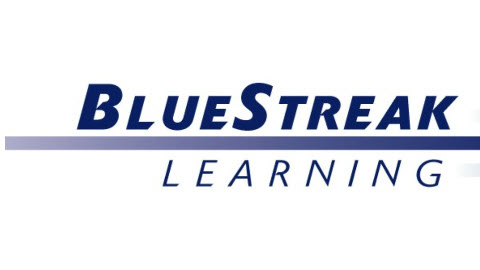One of the biggest obstacles that extended enterprises face is ensuring that every person in their network is fully trained with the skills they need. These networks offer multiple services, including manufacturing, selling, servicing, and supporting one or many products.
All of these services are necessary for the extended enterprise to run, but providing training for each and every worker is a challenging task. As a result, it often goes neglected or only happens by accident.
As an original equipment manufacturer (OEM), you need to confidently know that everyone in your network knows how to do their job. It doesn’t matter that you make the best cars in the world — if the dealerships can’t sell them or service them well, the business will fail.
The key to successfully training an OEM’s extended enterprise is delivering tailored training to each employee in the network. And that’s where LatitudeLearning LMS stands apart from other learning platforms.
What Is Extended Enterprise Training?
Challenges of Running a Complex Training Program
Trying to run an extended enterprise with an ineffective training program is like driving on a flat tire. The car might still run, but the flat will cause permanent damage to the vehicle if it goes unfixed. However, for extended enterprises, repairing the tire — or in this case, the training program — poses a few challenges.
To get a better concept of these partner training challenges, we’re going to look at how they impact the training of a technician role.
Numerous Roles to Train
A single technician is one cog in a massive machine. They may be responsible for servicing a single product, or even a single part of a product. In a traditional automotive setting, there’s electronics, navigation, drivetrain, engines, brakes, and many other areas of service. The technician is only going to work in one of these areas.
Just with technicians, there are many concerns their training needs to support. What pieces of technology do they need to master to effectively service a product? Outside of them, other people are making, selling, and supporting the product. Where will a single person fit into this system, and how does their training reflect that?
There are dozens of skills that each person needs, and they don’t attain those skills by simply taking one class. However, things will slip through the cracks in a poorly managed training program.
It’s very easy for a large extended enterprise to overlook key training elements for a single technician, especially if there are hundreds of other people servicing products. As a result, the LMS must be able to manage even the tiniest aspects of training giant networks.
Defining Roles
Defining roles is another challenge that your LMS must be able to handle. If an extended enterprise has effective training, your technician will expertly understand their job function. They know what tasks are their responsibility, and they know how to perform those tasks.
In an extended enterprise that fails to clearly define their roles, technicians end up with skills they don’t need — and lack the ones they do need. Dealerships and distributors become overloaded with certain skill sets, and are missing important pieces in other areas.
All of this comes down to helping each employee first understand their job, and then teaching them how to do it. This starts right as they come in the door. In fact, recent data shows that clearly defining roles and expectations is even more important to people who are new to the workforce.
There’s also a vertical aspect to defining roles. As the technician spends more time working in the extended enterprise, they take on more skills. Entry level technicians are handed a basic skill set that eventually grows as they move up levels. Therefore, your extended enterprise LMS must also be able to plan and deliver training that evolves over time.
Correctly defining roles during training is key to helping extended enterprises operate at peak performance. Many enterprises tend to avoid this challenge, but it’s vitally important for getting as much as possible out of a network.
Continually Managing Training Paths
It takes a lot of thought, planning, and effort to initially establish the foundation of a skills-based training program. However, a successful LMS doesn’t end with implementation. We’ve already looked at how skill sets grow with experience, but what happens when the technology in a field changes entirely?
For example, if your technician has been trained to service engines, they’re going to need more training as the field shifts toward electric technology. Even if they’ve mastered every skill related to internal combustion engines, those skills are starting to become less useful.
As one technology sunsets, your employees need to learn how to provide service to the next big thing. Quality training programs even anticipate what’s on the horizon so that their employees are ready for when it takes center stage.
Retraining a highly skilled workforce takes a lot of time and planning. Skill sets need to be completely redefined and talent may need to be redistributed. It all comes down to what’s needed to service the customer base appropriately as things change.
This can be a scary process for extended enterprises. However, the right LMS will provide the flexibility and support to transition an entire workforce into a new era without losing a beat. This is one of the reasons LatitudeLearning customers stay with us for years longer than the industry average.
Evaluating Performance Metrics
Another layer of complexity within the learning management machine is tracking performance metrics. You can devote all the time in the world to developing and managing a learning program, but it won’t mean a thing unless you can prove its success during evaluation. To do this, extended enterprises need to track measurable data that helps them determine their quality of customer service.
Evaluation management itself is a beast to tackle. Tracking units sold, parts sold, number of warranty claims, the number of revisions — and relaying all these individual pieces back to training — is deeply complex and time-consuming.
However, incorporating metrics with your training will give your extended enterprise the results you’re looking for. An impactful training program is not only measured by people completing courses. Using all the available metrics helps networks validate and confirm that their individuals and partners are performing at the right level.
LatitudeLearning LMS Eats Extended Enterprise Training Challenges for Breakfast
LatitudeLearning LMS is built specifically to handle the training challenges extended enterprises face. We provide the ability to easily define curriculums and certifications for thousands of employees.
Latitude helps architect and model the changes that are going to occur in industries over time, and we help enterprises plan for those changes. Our LMS allows you to create exactly what you need to train each of your employees and partners. And most importantly, modeling and building for the future happens without interrupting any ongoing learning.
Request an LMS Demo
Discover why LatitudeLearning is the LMS of choice for the extended enterprise.
After your model is defined and structured, we turn it into a perfectly tailored system that sets each employee on a training path that’s made just for them. From there, your employees will be as prepared as possible to meet the demands of their roles.
In addition, we have a firm belief in connecting pain-free learning management to proven results with reliable performance metrics. Whatever your key performance indicators may be, we have a proven track record that our LMS helps your employees succeed.
Ultimately, our LMS is designed to maximize your customer service through a skills-based approach. Extended enterprises that invest in this level of complexity with their training have proven to be more successful in their customer service. It also transforms training from a cost center into a key value-adding piece.
Test Drive Our LMS Demo for 30 Days
LatitudeLearning offers a free 30-day trial of our LMS. Try it out risk-free before making any investment. We promise you won’t be disappointed, and when you’re ready to get started on your own version, we’ll be there to partner with you.





